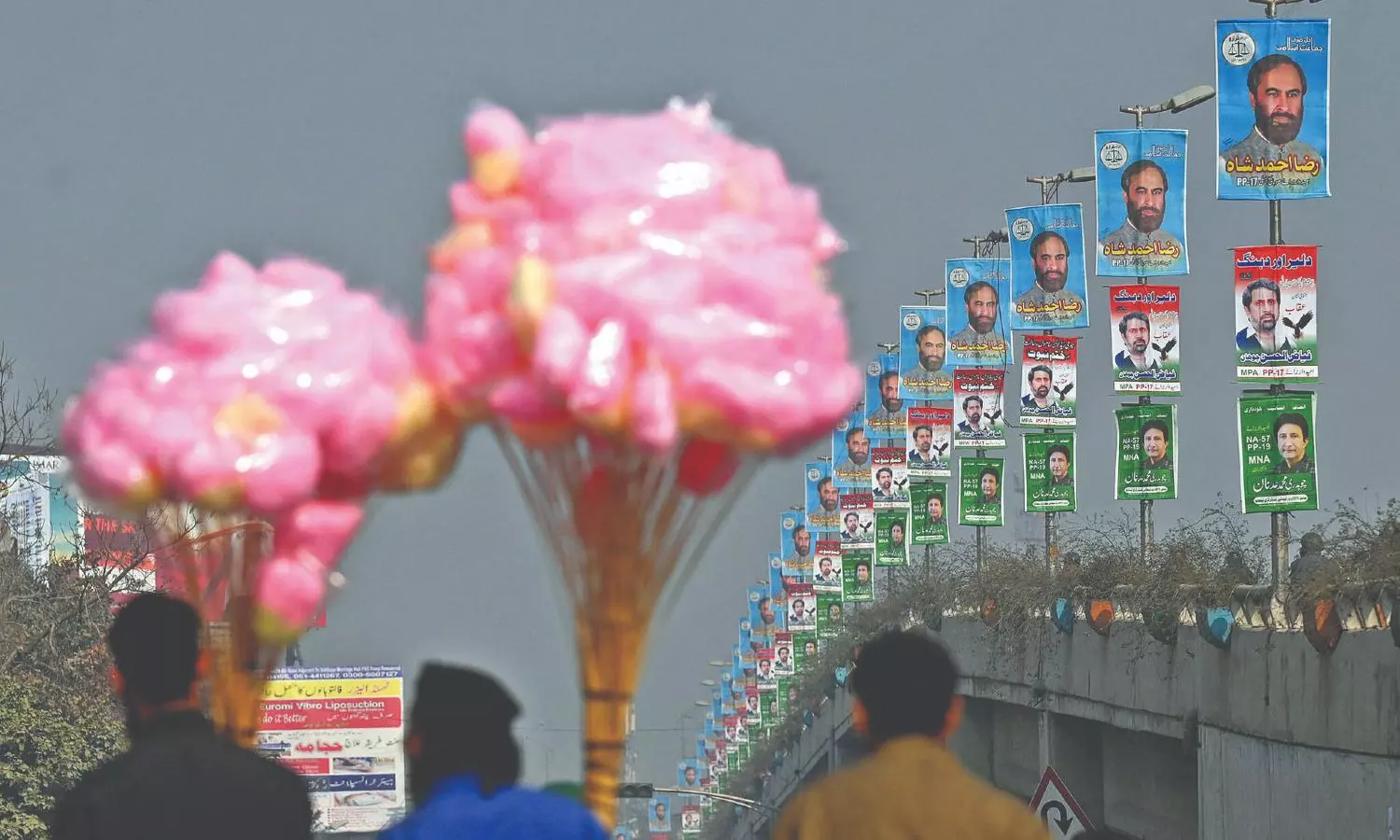Election upheaval: Pakistanis losing faith in democracy
Khan’s party, the Pakistan Tehreek-e-Insaf, faces severe challenges in this week’s elections, including an authoritarian crackdown on its members;

Representative image
By Bina Shah
NEW YORK: This is a critical week for Pakistanis. On Thursday we will vote in federal and provincial elections, with the future of our democracy in question. We are not the only country facing such a moment this year. National elections will be held in more than 60 countries, which account for nearly half the global population.
But I suspect that millions of voters around the world are, like me, wondering whether they even believe in the promise of democracy anymore. Pakistan has never been able to get it right; next door in India, the world’s biggest democracy, elections a couple of months from now are likely to extend the grip of Narendra Modi’s Hindu-supremacist government, and Donald Trump is on the upswing again in America, which votes in November. The world is in a state of turmoil and instability — with harrowing conflicts raging in Gaza and Ukraine — partly because of the chaos of the modern political process and the short-sighted leaders who take advantage of it.
Pakistanis have been haunted by feelings like this for decades. In 1977, when I was a girl, Prime Minister Zulfikar Ali Bhutto was deposed in a military coup that plunged the country into dictatorship and martial law. He was hanged two years later, and the darkness of that day has never left me — the eerily empty streets, the newspapers declaring it a black day in block letters on the front pages. Military rule ended in 1988, followed by a welcome though often politically chaotic decade of democratic rule and then by yet another period of military dictatorship. Experiments with democracy resumed in 2008, but the repeated blatant thefts of power have left us shell-shocked.
And here we are again.
The elections on Thursday will proceed without Imran Khan, the popular former prime minister who was sentenced last week on questionable charges of leaking state secrets and corruption. (He was given prison terms of 10 years and 14 years.) When he was elected in 2018, he promised to free Pakistan from corrupt dynastic politics. But his term ended four years later in much the same way as those previous periods of democratic rule. The United States looked the other way while his elected government was removed from power.
Khan’s party, the Pakistan Tehreek-e-Insaf, faces severe challenges in this week’s elections, including an authoritarian crackdown on its members. Former party figures must now run as independents. The Supreme Court has even barred the party from using its popular election symbol, a cricket bat. (Khan was a national cricket hero before turning to politics.)
So we will go to the polls this week with a sense of frustration and futility. Pakistanis, especially young adults eligible to vote for the first time, are asking themselves: Why vote for politicians who seem to have no goal other than to take power and use it against their opponents?
The somber mood is everywhere on the streets. Canvassing and campaigning are muted, and there is far less of the political singing, flags, banners and other trappings of past elections. These had at least brought some excitement and a festival-like atmosphere to break up what can often be a chaotic, stressful life for so many of Pakistan’s 245 million people.
The election gloom matches the difficulties that Pakistan faces. An economic crisis, marked by spiralling inflation and unemployment, compounds the challenges for a country already struggling to house, educate and provide proper health care for the world’s fifth-most-populous country.
The caretaker government installed after Khan’s ouster issues announcements almost daily of its resolve to uphold a peaceful electoral process: The army will be deployed, schools will be closed for eight days, and officials have denied rumors that social media and internet access will be shut down. But there is still palpable tension, demoralization and the unavoidable question: What are these elections even for?

